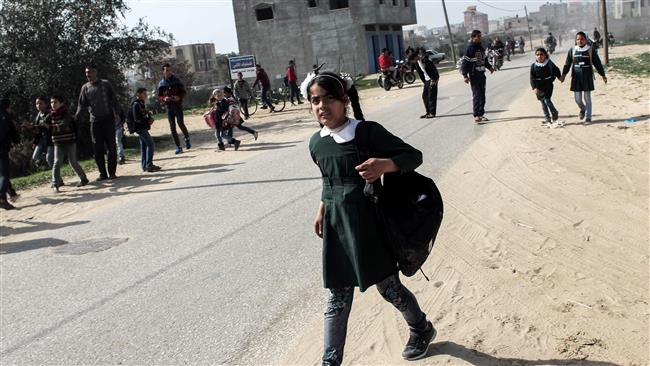
RNA - Izzeldin Abuelaish, a fertility specialist, lost his daughters, aged 20, 14 and 13, along with his niece on the night of January 16, 2009, during the Israeli military aggression against Gaza.
In late 2010, he sued Tel Aviv in an Israeli court, demanding an apology, acceptance of responsibility and due compensation. The court scheduled the hearing for March 15.
“This is an emotional moment for me. But I want you all to know that I am not coming to defend but coming to advocate for justice and hope,” Abuelaish told reporters in Jerusalem al-Quds on Tuesday, adding that “in spite of the tragedy and what happened to us, we succeeded with the help of my beloved children to make life from death.”
After an initial probe into the case, the Israeli military acknowledged that its forces bore liability for the killings, saying they mistook the girls for spotters from the Palestinian resistance movement Hamas.
However, Israeli military lawyers recently claimed that they had found fresh documents alleging that shrapnel from the victims' bodies had not been used by the troops but were from explosives concealed in the house. Abuelaish said such allegations were “immoral, unethical (and) insane.”
“I am angry because we have to fight for this,” said 25-year-old Shatha, his daughter, who survived the shelling. “The victim has to ask for justice. We should always follow them and ask them to take responsibility so this never happens again,” she told reporters on Tuesday.
On December 27, 2008, Israel waged a war on Gaza and its warplanes pounded the enclave for the next five days, killing nearly 450 Palestinians.
Israeli ground troops, with the help of scores of tanks, invaded the region on January 3, 2009, and destroyed tens of thousands of Palestinian houses, 15 hospitals and over 40 primary health care facilities, 800 water wells, more than 180 greenhouses and nearly all of Gaza’s 10,000 family farms. Up to 1,400 Palestinians were killed in total during the 22-day war.
Five years later, in early July 2014, Israel waged another war on Gaza. The 50-day military aggression, which ended on August 26, 2014, killed nearly 2,200 Palestinians, including 577 children.
The Israeli military frequently bombs Gaza and carries out ground attacks from time to time. Disproportionate force is always used in violation of international law, and civilians are often killed or injured.
Gaza has been blockaded since 2007, a situation that has caused a decline in the standard of living, unprecedented levels of unemployment, and unrelenting poverty. The apartheid regime of Israel denies about 1.8 million people in Gaza their basic rights, such as freedom of movement, proper job, and adequate healthcare and education.
847/940